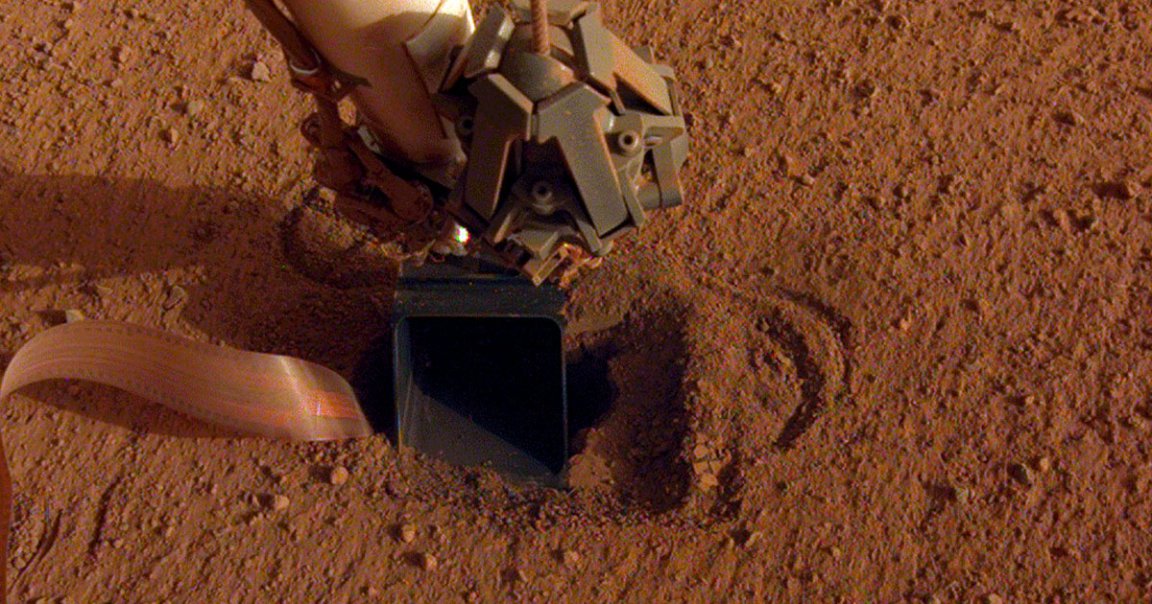
NASA has been desperately trying to use the “mole” attached its InSight Mars lander to bury into the Martian soil for more than 17 long months, but progress has been slow. The Martian soil composition just wasn’t what the scientists expected, forcing them to improvise.
In the latest update, NASA’s Jet Propulsion Laboratory outlined how the 16-inch, jackhammer-like mole, formally known as the Heat Flow and Physical Properties Package (or HP3), encountered its latest obstacle.
While it was able to finally bury its entire length into the soil, according to an early June update, it seems to have had some trouble getting to the desired minimum depth of ten feet (or 3 meters). After a lengthy “hammering session” of 150 strokes on June 20, as JPL puts it, the mole caused “bits of soil jostling within the scoop — possible evidence that the mole had begun bouncing in place, knocking the bottom of the scoop.”

The mole’s mission objective is to take Mars’ temperature from below the surface.
“Like studying the heat leaving a car engine, it measures the heat coming from Mars’ interior to reveal how much heat is flowing out of the body of the planet, and what the source of the heat is,” NASA wrote in a mission brief.
But getting deeper might prove very difficult going forward. The mole’s tether was found to be moving side to side now, according to images beamed back to Earth following the mole’s June hammering session.

The scientists’ best guess is that the soil isn’t providing sufficient friction. The soil beneath NASA’s InSight lander proved to be “cement-like duricrust” according to JPL, that may have caused the mole to recoil and bounce around.
The team behind the mole at the German Aerospace Center (DLR) are hoping to scoop up some nearby soil and throw it into the hole after the mole to provide some more friction.
The news comes after scientists at NASA had to get creative to free the mole by hitting it with its scooping shovel back in March, after the mole’s entire apparatus got stuck in the sand-like terrain.

The team at DLR estimate that it may require 300 cubic centimeters of sand to fill the gaps, a “number of scrapes” of InSight’s shovel scoop.
READ MORE: The ‘mole’ on Mars from NASA’s InSight lander may be stuck again [Space.com]
More on the mole: NASA InSight Lander Finally Manages to Bury Its Mole Into Mars